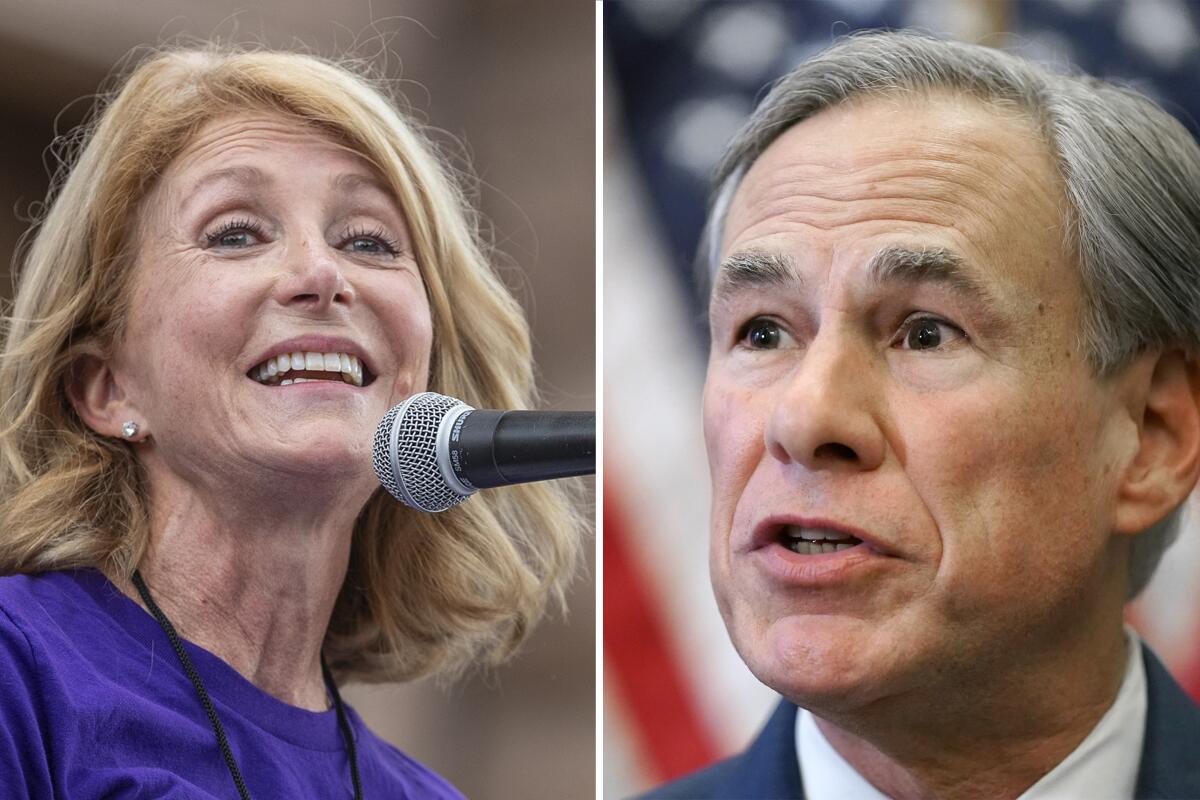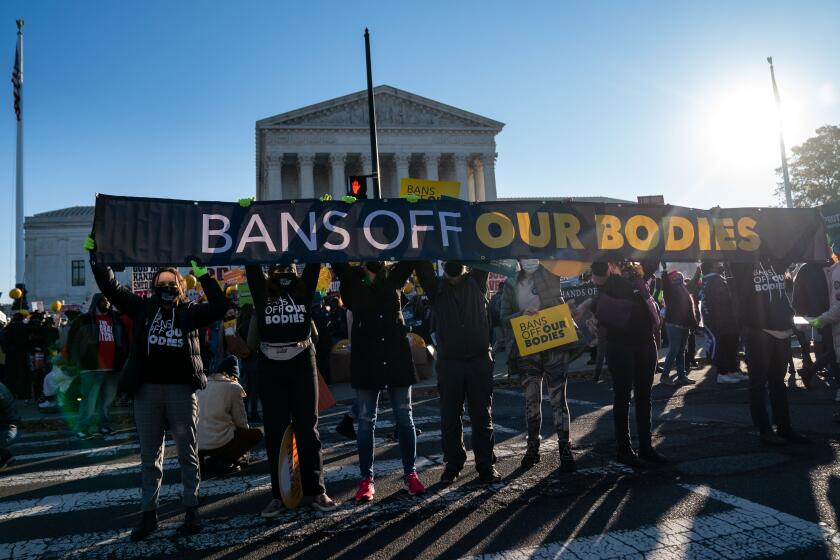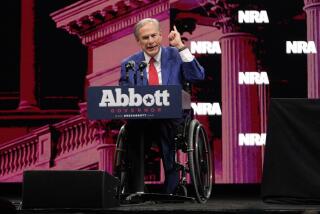Column: Texas Gov. Greg Abbott signed the nation’s toughest abortion law. Was it principle or posturing?

- Share via
In 2014, the Republican attorney general of Texas, Greg Abbott, faced Democratic state Sen. Wendy Davis in a gubernatorial contest that drew worldwide attention.
Davis became a mega-celebrity — book contract, magazine covers, speaking tour — after seizing the Senate floor in Austin and filibustering for nearly 15 hours in support of abortion rights. Tens of millions of dollars flooded her campaign.
Still, Abbott clobbered Davis in one of the biggest Texas landslides in years, extending a long record of futility by hapless Democrats. (Their last statewide win came in 1994, back when Amazon was founded and NBC aired the pilot episode of “Friends.”)
A divided Supreme Court refused Friday to block a Texas law that has banned most abortions in the state.
Abortion wasn’t the central focus of the race many had expected. Issues like immigration and healthcare and a backlash to the Obama administration were bigger factors in Abbott’s win. At that time, he had yet to sign into law the country’s most stringent antiabortion bill.
More on that in a moment.
In a book published during the campaign, Davis revealed she had terminated two pregnancies, including one due to an extreme fetal abnormality. Abbott restated his long-standing position on abortion, opposing the procedure in all instances, save when the life of a mother was endangered.
Then, less than two weeks before election day, the Los Angeles Times published an article on the governor’s race that included Abbott’s stance on abortion. His campaign immediately asked for a correction, saying Abbott had shifted his view and “now supports a Texas law that allows abortions to take place up to 20 weeks of pregnancy for any reason.”
It’s a small footnote to a long-past campaign. But it’s a curious one, given that Abbott earlier this year signed the bill effectively banning abortion in Texas by outlawing it after about six weeks of pregnancy. That’s before many women even know they’re pregnant.
There are no exceptions for cases involving incest or rape, though Abbott offered his assurance the state would “work tirelessly to make sure that we eliminate all rapists from the streets of Texas by aggressively going out and arresting them and prosecuting them.”
As if it were that simple.
So what happened? Why did Abbott change his position on abortion in the waning days of the 2014 race, publicly adopting a far more permissive stance, then sign into law the country’s tightest restrictions, along with a bounty system that allows private citizens to enforce the near-total ban?
Abbott’s press shop did not respond to requests for comment. So here’s a guess: Running for a third term in 2022, the governor is facing Republican challengers seeking to outflank him in the March 1 primary by running to Abbott’s right.
(Several Democrats are also bidding for governor, including the faded phenom Beto O’Rourke, but they face very long odds of prevailing in November.)
Beto O’Rourke pursues a go-everywhere strategy in running for Texas governor, hoping to detoxify his party’s image in rural America.
Abbott’s most pugnacious opponent, former state Sen. Don Huffines, is using a small part of his personal fortune to brand the governor as a moderate — by Texas GOP standards that’s Karl Marx territory — and advertise himself as “an actual Republican.”
Abbott is politically conservative. There’s no question about that. But with Huffines dogging him, the governor has moved even further to the right, reversing his position on COVID-19 mandates and prohibiting schools, businesses and local governments from imposing such requirements. He has also, among other moves, echoed Huffines’ call for Texas to build its own wall along the border with Mexico.
Assuming he wins reelection, the 64-year-old Abbott is being talked about as a prospective presidential candidate in 2024, following in the steps of his two most recent Republican predecessors, George W. Bush and Rick Perry. He even has some of the same political advisors who worked for Perry.
Abbott has a reputation in Austin for twisting like a weather vane, depending on the prevailing Republican winds. Given his national ambitions, his flip-flops are worth noting.
If he’s that malleable on an issue as deeply felt as abortion, what does it say about Abbott’s core beliefs and what he stands for? Apart from winning office, that is.
More to Read
Get the latest from Mark Z. Barabak
Focusing on politics out West, from the Golden Gate to the U.S. Capitol.
You may occasionally receive promotional content from the Los Angeles Times.













